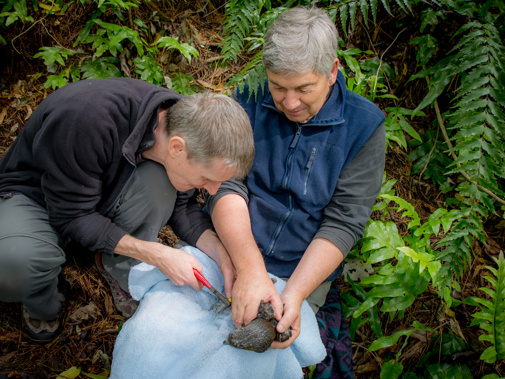
Wellington's Zealandia has just reached another milestone in its efforts to bring wildlife back to the city.
The sanctuary has just banded its 800th kaka.
When Zealandia first began its kaka breeding programme, the birds had been effectively extinct in Wellington for around 100 years.
Six kaka were introduced to the sanctuary in 2002.
Zealandia volunteer Bill Beale said the success of the programme, together with predator control in the greater Wellington region, had seen the native parrots moving further afield, establishing breeding pairs outside Zealandia's fence.
He said the kaka nestling “W-YG”, the 800th kaka to be banded, is still in his nest box being cared for by his mother.
"But any day now he will be out learning to fly and may someday be able to be spotted beyond the Zealandia fence line" he said.
Beale said adding a unique combination of coloured leg bands allows individual birds to be identified, even at a distance.
Number 800 has the bands White - Yellow/Green.
The original reason for banding was to monitor the bird's breeding behaviour, but Mr Beale said a new focus is the study of the bird's intelligence.
He said as part of Zealandia's partnership with Victoria University, researchers have been studying how they tackle problem solving, how they learn and remember, and how much they can learn from each other.
Parrots have long been a favourite subject for animal cognition researchers he said, but most studies have been on captive birds.
He said what is special about Zealandia's kaka population is the free and natural environment they live in, and its close proximity to the city.
Take your Radio, Podcasts and Music with you









